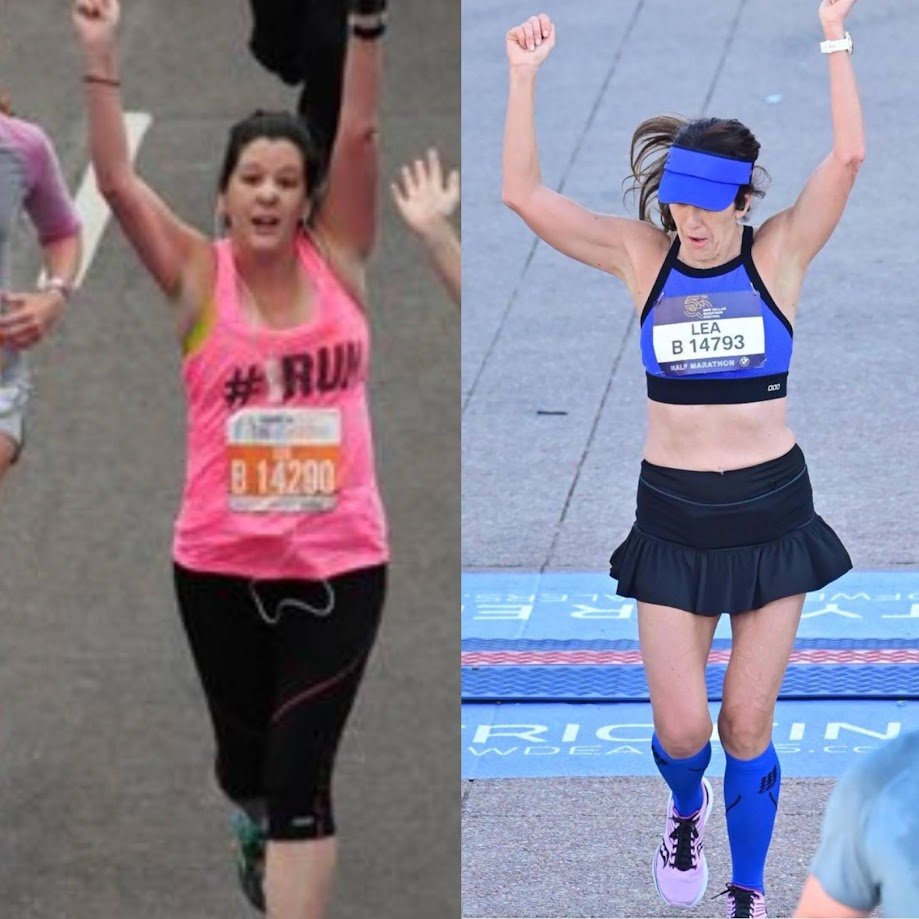Ugh. How can I say that? "I'm grateful for my injury." It sounds like bullshit, even to me. Do I wish I wasn't injured? Of course. But can I find the silver lining and positives of the situation? I'm trying.
The morning after my forty-ninth birthday, I felt pain in my right foot. My warranty expired! What the heck? I have next to no idea how it happened. It's proof that you can seemingly do everything right and still have issues sometimes. There have not been any changes to my training volume or intensity (if anything, run training got slightly reduced through the summer heat). I've been strength training, sleeping, resting, and eating as usual. Who the hell knows? A co-worker said, "Did you drop something on it?" Oh, how I wish it were that easy.
The good news is that the doctor said it was a bruise and could still run on it. It's not the type of injury that will worsen by continuing running. But my foot hurts, and the few times I tried to get out there, I noticed that it was affecting my running mechanics, so I know better than piling on a bunch of miles to a compromised gait. That could lead to a different, more severe injury.
So, I've taken the most challenging action. I've done nothing. I took more than two full weeks off running, then started taking short walks and tested out a couple of run/walk workouts spaced a week apart.
My foot remains relatively the same. I am coaching a group to train for the Dallas half marathon I also planned to run. The doctor said I didn't have to count myself out, but I am getting behind on training. It's not looking bright that I'll be able to cross the finish line in December. The idea of running a race undertrained is my version of hell.
As a running coach, how do I coach myself through this situation?
The truth is, it's next to impossible to coach yourself. Even the best coaches have coaches because it's not about what you know; it's being able to look at a situation objectively and help guide another person to their desired destination. When our emotions and egos cloud us, being unbiased in our decision-making isn't easy. When I face an issue, I often have to think about what I would tell a client if they were going through the same situation, and it's often the reality check I need to realize I have not been impartial in my thinking.
We're emotional beings. It is in our nature to react. I want to freak out, but what would I tell a client going through the same situation? I'd say to them:
Find Gratitude in Injury
We may take our body and what it can do for granted sometimes. We expect it to keep going no matter how we treat it. When our body seems to fail us, it is telling us to take a break or slow down...because we need it. It’s more of a protective mechanism than a failure.
Like it or not, the pain can be a gift. If I didn't have this pain, I wouldn't know anything was wrong, and I could have been worsening the situation if I continued to run on it.
Losing the ability to run my usual thirty miles per week pissed me off at first. But then, when I ran two easy-effort miles recently, I was so grateful for those two miles.
I'm grateful for the break, even if it feels ill-timed. It is time off I never would have taken willingly, and perhaps it's just what I need. We shouldn't expect our training to be at full throttle all the time; it is simply not how we thrive. It's better to have periods of hard work followed by recovery periods. It's normal for life fluctuations to reflect in our training. If we don't take it easy voluntarily, sometimes life demands it. The healthy perspective is to be grateful for the break because fitness is a lifelong endeavor and will naturally have ups and downs.
Shift Focus TO Something Productive
Instead of crying over the miles that I couldn't run (after the first week or complaining about it—hey, I'm human!), I focused on what I could do. I may not be able to run, but I could spend more time in the gym. But even my deadlifts were affected. Heavy pulls from the ground put additional pressure on my foot, leading to some lingering pain afterward.
It's easy to fall into all-or-nothing thinking, but I lightened up those deadlifts and carried on. I can still participate in many activities to maintain and improve my physical fitness. It's entirely unproductive to dwell on what I can't do. I considered that running less might help with muscle development, and reducing mileage could benefit my weight lifting. I am heavily focused on upper-body workouts while maintaining my lower body and seeing what happens when I shift my focus toward these new goals. I look at it as an experiment and stay curious about what happens when I turn my focus.
Decide How We Will React
I could freak out (I did), drown my sorrows in junk food (maybe that, too), or adopt a negative mindset and give up entirely, but honestly, in the big picture, it's not the end of the world. I am not permanently injured. I may miss a race, but many other races will follow. I am not missing the Olympic trials; I do this for fun and recreation. I must change my training so my body can heal and return stronger. It's not a death sentence. It is not life-altering. I will get through this, as I have gotten through similar situations before. A little perspective can help you get through it. In five or ten years, will I even remember this blip?
Use Injury as an Opportunity To Grow
Sport (and fitness) allows us to practice mental toughness without significant consequences. There is not much at stake when we fail other than our poor, fragile egos. But when you face challenging situations, whether it is powering through a tough race or training, adding more weight to the bar, dealing with poor performance, or injury, it allows us to grow and become stronger human beings so that when life hits us with those real-world problems that do matter, we have the mental skills developed to overcome. Life handed me an opportunity to practice this skill set.
What Can We Learn?
I don't have all the answers or understand what lesson I will gain from this injury, but I am staying open to learning from this setback.
It could be because of some training error, a need for more recovery or nutrition, or, in my case, something that I can't immediately pinpoint.
Maybe I am supposed to learn patience, humility, or even empathy to understand when my clients experience similar setbacks.
A lifestyle of fitness inevitability leads to some setbacks along the way, but it is a net positive. We get more out of challenging ourselves moving our bodies than we would play it safe on the couch (which is not so safe either). It's part of the process, and learning to use injury as an opportunity to be grateful, learn, and grow allows us to come back with a stronger body and mind over time.
Stay healthy, friends. Appreciate your body and what it can do for you. I hope to see you at a half marathon starting line soon!
Did you like this post? Do you know someone who might benefit? It helps me when you share with your friends and followers on Facebook, Twitter, or Pinterest.
Questions? I’d love to help.













